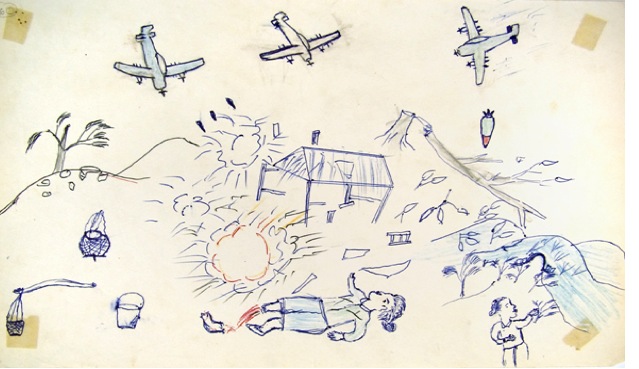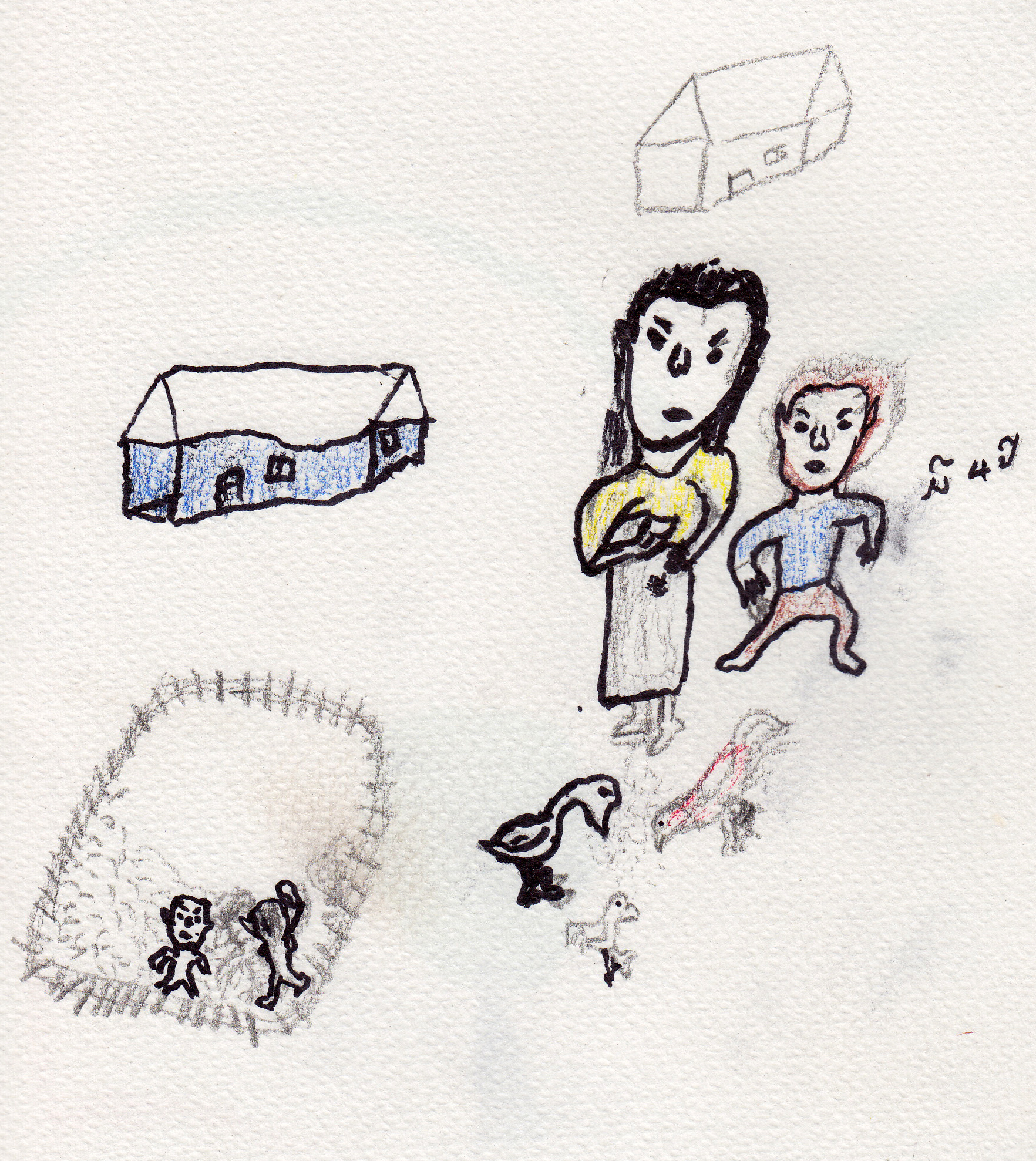I have just learned that Fred Branfman has passed away. I met Fred while in Vientiane, Laos. Fred had been instrumental in exposing the Secret War in Laos. Here's a summary of the Secret War from Legacies of War, a US non-profit dedicated to raising funds for bomb cleanup in Laos and education in the US: "From 1964 to 1973, the U.S. dropped more than two million tons of ordnance on Laos during 580,000 bombing missions—equal to a planeload of bombs every 8 minutes, 24-hours a day, for 9 years – making Laos the most heavily bombed country per capita in history. The bombings were part of the U.S. Secret War in Laos to support the Royal Lao Government against the Pathet Lao and to interdict traffic along the Ho Chi Minh Trail. The bombings destroyed many villages and displaced hundreds of thousands of Lao civilians during the nine-year period."
Fred, who was living in Laos as an educational adviser during the Secret War, was shocked to learn about the bombing. He collected interviews and drawings from refugees of the bombing, published them into a book, Voices from the Plain of Jars: Life Under an Air War, that exposed what was happening. He informed Congress of the bombing, generated national media, and investigated U.S. bombing activities in Thailand and South Vietnam. The testimonies he collected continue to inspire action through Legacies of War - you can see the illustrations online here; unfortunately, up to 80 million of the cluster munitions did not detonate and continue to be a risk to Lao children, farmers, fishermen, and people across the country.

Fred was an inspiring figure for me, and I was moved by the power of the images he collected and his life's work. I had come to Laos from Oakland, CA, where I had been involved in anti-prison and anti-policing work and was trying to find energy to do social justice work in a world that felt violent and scary. Our discussions showed that Fred was truly a seeker - he was actively searching for truth, for justice, for meaning, for compassion, and for steps to take in solving the many problems of our world. I was feeling so full of sadness for what had happened in Laos and meeting him was so important. He also wrote about meeting in an article that wasn't published, called A Week on the Plain of Jars:
"I was having a last talk in Vientiane before hailing a taxi to take me to the airport to fly up for my week in the Plain [of Jars], with a sensitive young American woman. She was a newly arrived Fulbright scholar who had just arrived to spend a year in Laos, and had been learning about the bombing and its thousands of victims since. She happened to be 25, my age when I had first arrived in Laos in 1967. As our conversation was ending I asked what her goal was for her next year in Laos. She responded: "To learn to live with the sadness." And I suddenly knew what I hoped to achieve during the coming week."
During my time in Laos, I tried to continue his work. I worked to try to bring Voices from the Plain of Jars into schools in Laos (and failed - the political climate made it impossible to achieve), but I did manage to facilitate the creation of beautiful art work by  Lao children and youth who had survived accidents with bombs leftover from that war. Their work lives on in Xieng Khouang, in murals in the Quality of Life Association visitor center. I had dreams of bringing the drawings to the US in an exhibition, and still hope to, though many of the originals were lost by the postal service. If you know anyone who is interested in displaying this work, please contact me.
Lao children and youth who had survived accidents with bombs leftover from that war. Their work lives on in Xieng Khouang, in murals in the Quality of Life Association visitor center. I had dreams of bringing the drawings to the US in an exhibition, and still hope to, though many of the originals were lost by the postal service. If you know anyone who is interested in displaying this work, please contact me.
Fred continued to visit Laos, as well as work with many of the other sadnesses around the world. He was a prolific writer and thinker. I have thought of Fred many times since I last saw him, as an example of a person who could hold many of the world's sorrows and not be destroyed by them. This is a rare gift, and not one I'm sure I have. It is so easy to medicate this sadness (and there is so much to be sad about! Racism, sexism, the environment, gun violence...it's all happening just down the street or to us all) with making money, or buying nice things, or burrowing into a comfortable life. I remember Fred today and his commitment to having a capacious heart (in the words of Kate DiCamillo) and to using his heart to guide him forward, no matter where that took him. I honor him and his work and feel sad that this world doesn't have him in it any longer. However, we will always have the work that he has done all over the world, and his legacy is one of peace; remembering Fred fills me with sorrow but also with so much happiness - joy that he has lived.